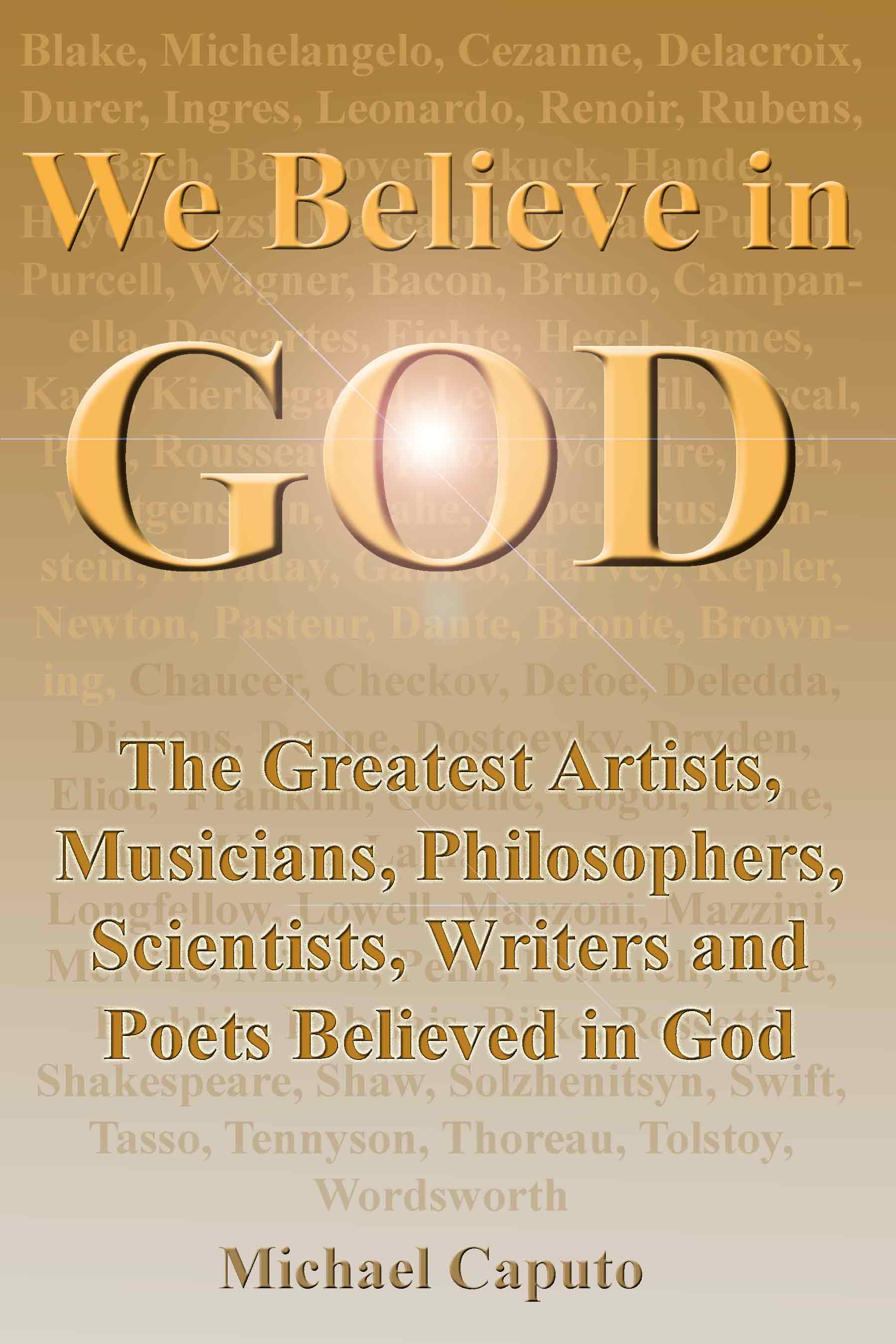|
RICHARD DAWKINS: THE GOD DELUSION- ANALYSIS
Have you ever heard of Richard Dawkins? No?
Then type, “Richard Dawkins” on Google, and you will find about 7,000.000
results. Richard Dawkins is no lightweight; he is the modern High Priest of
the philosophy of Atheism. He is adored by millions of fans who revere him
like… a god.
But who is Richard
Dawkins, really. He is an Oxford professor with a long list of credentials,
either earned or honorary and an impressive list of books and articles on
scientific topics and, most of all, on Atheism and the evils of Religion.
His most recent work, The God Delusion, has been for weeks on the
New York Times bestseller list and has earned him a big bundle.
On the other side
of the fence, there are millions who loathe and despise him and consider him
to be a child of the Devil and an Antichrist.
The view of this
author is that this impressive academic is not impressive at all. If one
looks superficially at the buildings he builds (his arguments), he seems to
be unassailable—until one looks closely at the bricks one by one, and it is then
that one realizes that Richard Dawkins is in fact an intellectual
“illusionist.” He is able to create “illusions” of reality, thanks to a
combination of pseudo-logic, subjective judgments, a dismissive approach,
distortions, false facts, inebriating figurative language and disarming
self-assurance.
Let’s look
together at some of Dawkins illusions in his latest work, The God
Delusion, starting with the Preface.
On page one, he
tells the reader that reading his book will be a “positive” transformational
experience. His overall aim is to raise the “consciousness” of the reader to
the fact that Atheism is “a realistic aspiration, and a brave and splendid
one.” It takes bravery to join Atheism, and it is a “splendid” decision. Why
would one not want such an honor…
He then proceeds
to reassure the reader that one can be an atheist and be “happy, balanced,
moral, and intellectually fulfilled.” That might be; but what does he mean
by those terms? Can a person be truly “happy” in seeing the suffering in
this world day by day and in believing that it is all for naught. How can
one be happy as illness and death reap havoc among friends and relatives,
while one has no hope or faith to cushion the blows?
He also uses the
word “balanced.” Perhaps so; but how many people can be balanced by
embracing the belief that life is short and that one only takes with himself what one
can garner from day to day? Why be balanced, if you could die at any time?
Why not “eat and be merry” instead?
“Moral?” Which
morality, Richard? You and I know that when there is no “fixed” moral code to be
guided by, what follows is a self-chosen, “flexible” morality that one can
“adjust” at will. After all, who is to decide what is right and wrong, if no
Higher Power is there to determine it? And if one is tempted to “cheat” on
his moral code, who will be there to stop him? Who will he answer to? Will
he need to worry about guilt? How? His conscience has been silenced by his
subjective determination of right and wrong. What guilt?
The kind of
morality many atheists gravitate to, once they leave God, is listed
on my web page “Not
So Moral Atheists.” These are the fathers and mothers of Atheism—the role
models that atheists have to look to for guidance. What did they stand for?
Check it out. You may be quite surprised.
As for being
“intellectually fulfilled,” that may also be. Atheists have an
unparalleled way of becoming “intellectually lofty” and “superior,” once
they embrace Atheism. They have now joined the rank of the “enlightened” and
the “brilliant.” Everybody else is seen as blind, stupid or close-minded.
Perhaps a better phrase would be, “filled with pride and arrogance,” as this
is a trait so many of them exude in very large quantities.
On the same page,
he also lists the many negative results that Religion has brought upon
humanity. The list is long, and it encompasses centuries and many different
lands. How would the world be without religion? The answer is obvious,
according to Dawkins: a much more peaceful place.
But has he
forgotten what really drives human nature? He is free from religion, and yet
he is filled with pride, arrogance, animosity and an acerbic offensive
spirit, which provokes anger and defensiveness in others. Is this not the
list of traits that saturate human beings of every color and nationally, that
has been at the heart and core of human conflicts for millennia?
He is free from
religion, but is he really clean from ulterior motives? Is he only
mass publishing and roaming around the world giving well-paid lectures
because of altruistic motives? Is he taking all his massive profits and
giving them to charity? Is he immune from feelings of vanity and
superiority? Is his all-too-human ego unaffected by the throngs that live
by his word and are energized by his tirades? Bet you are not Richard; bet
you are not.
Further down,
Dawkins prepares the reader to another one of his aims: convert the poor
agnostics who, as he later stresses, are essentially gutless
“fence-sitters.” – a theme also propagated by his arch-atheist predecessor
Madeleine O’hair. The tone is again one of superiority, and acerbic
criticism -- even of those who are so close to his views. But to Dawkins you
either go all the way and accept his ideology or you are a nobody. Sorry
agnostics; it's all or nothing with this man.
Page two
introduces us to Richard’s baby: “The power of cranes such as natural
selection,” as the satisfactory explanation for almost anything in the
universe. Dawkins tells us that Darwinian “Natural Selection” explains the
“illusion of design…with far greater economy and with devastating
elegance.” Devastating to any belief in design, of course, and according to
his “divine” assessment.
On page three, we are told that “a proper understanding of the
magnificence of the real world, while never becoming a religion, can fill
the inspirational role that Religion has historically – and inadequately –
usurped.” Dawkins admits that the natural world is “magnificent,” but
please, don’t look for a "supernatural" cause, as the ultimate
Source. The trial and error of
natural selection has blindly brought it all to pass. Look at the
magnificent Sistine Chapel Ceiling of life, he tells us, and know that
blind non-directed energy transformed itself in the molecules that turned
into the ceiling, the paint and the brushes that ultimately created the
magnificent natural painting—without any painter. Don’t praise the
painter, praise “blind” energy and its stunning ability to create
magnificence without a mind and without an aim. Most of all, don’t ask
where the energy came from. Simply start there and worry about the fact
that if you believe in God then you have to explain His origin, which you’re
better off not trying to do.
On page four and five, Dawkins informs us that Atheists are
more numerous than Jews in America, yet they are politically weak, because
they dare not come into the open to get organized so as to influence
politics. The reason? Atheists “tend to think independently and will to
conform to authority.” How true. This is one of the fruits of atheism. Once
one is free from human and divine authority, one becomes "the authority."
One’s ego becomes the guiding force, the supreme guide. Now imagine a world
made up totally of atheists. If everybody on earth would have that kind of
mental set, what would happen to society? Could there ever be any form of
government? Could there ever be any harmonious society? Would anything ever get
done? Think of the pride, arrogance, competition, intolerance and animosity.
What a world that would be, Richard, what a world…
On page five,
Dawkins invests a significant amount of space to explain the title of the
book. A “delusion” according to Microsoft Word Dictionary, he quotes, is “a
persistent false belief held in the face of strong contradictory evidence…”
Thus, he adds, this definition “captures religious faith perfectly.”
Of course that
depends on the point of view. Many of us would say that the definition
applies instead “totally” to atheists who are deluded enough to believe that
blind energy can bring into existence all the “magnificence” of the
universe. It’s all based on the point of view, Richard, and your point of
view is not divine.
On page six, he
sarcastically warns us believers not to open the book, as it has the
potential of transforming our minds. All it takes is an “open mind” and the
rest is unavoidable. Well, Richard, some of us have read your book and are
laughing. Your efforts have been a waste. You have only succeeded in
strengthening our views, in showing us how little you have to offer our
intellect and how sad an attempt at converting believers you have put
together.
Interestingly, by perusing the various
comments about your book on the Internet, it appears you have succeeded in
turning off even some of your more intelligent fellow atheists, who see your
latest work as a sad intellectual exercise that only served to harm the
philosophy you are so enamored with.
Ironic, isn’t it, Richard…
M. Caputo
Chapter by chapter analysis.
|
We Believe in God
The Greatest
Artists, Musicians, Philosophers, Scientists, Writers and Poets
Believed in God...(And
a great many Nobel-Prize winners).

Unlike what atheists propagate, the greatest
minds of the past believed in God.
Read the fully-referenced proofs in this book.
AVAILABLE IN BOTH PAPERBACK AND
E-BOOK FORMAT ON AMAZON. |
|
|
Free Booklet from
UCG.org
Life's Ultimate Question: Does God Exist?
(No
Follow Up)

|
OTHER DAWKINS PAGES
ON THIS SITE
Dawkins Lack of Brilliance Exposed -- From His Own
Words.
The
God Delusion,
Preface Analysis.
Dawkins and Einstein,
on the Bible and Jesus Christ.
Is Richard Dawkins Satan Possessed?
Dawkins and Nobel Prize Winners.
Chapter
by Chapter Analysis of, The God Delusion.
A Crucial
Message to Richard Dawkins.
God
and the Probability of a "Gigantic Intelligence."
Extraterrestrials? Yes! God?
No way!
RELATED WEB SITES
Dave Crofts, "The
Root of all Evil? Part 1'
Part 2"
John Lennox, "God
and Richard Dawkins" Bethinking.org.
Nick Pollard, "The
Root of all Evil? The problem with Richard Dawkins' faith."
Peter S. Williams, "Is
Life Designed or Designoid? Dawkins, Science and the Purpose of Life."
Peter S. Williams, '"What
do you believe is true even though you cannot prove it?" - Comparing
Dawkins' Blind Faith with Flew's Evidence."
Alister McGrath,
"Dawkins' God: Genes,
Memes, and the Meaning of Life."
(Blackwell, 2005)
"Climbing
Mount Improbable, A review of Climbing Mount Improbable by Richard Dawkins"
"A
Critique of Richard Dawkin's Views on Religion"
"The
Dawkins Confusion"
"The
Devil's Chaplain"
"Lennox-Dawkins
Audio Debate"
"No
wonder atheists are angry: they seem ready to believe anything"
"Reflections
on Dawkins' The Blind Watchmaker
"
"Some
thoughts on Richard Dawkins' The God Delusion
"
"Unweaving
the Rainbow: Science, Delusion, and the Appetite for Wonder"
HIGHLY RECOMMENDED!
The Dawkins'
Delusion
(Alister E. Mc Grath)
God is No Delusion
(Thomas Crean)
HOME |






